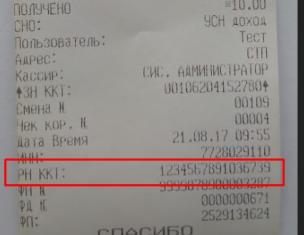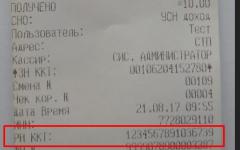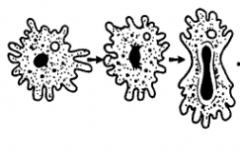Perceiving life in black and white is not as simple as it might seem at first glance. We periodically turn red with embarrassment, turn green with envy, put on rose-colored glasses and believe in a blue dream. How to colorize life in English and skillfully use it in speech? Learning to demonstrate red speech.
1.Red
You can use the expression to be in the red, when someone owes something - it can be either a certain amount of money or more abstract concepts, for example, having tails in a session.
James promised to cover all his bedts by the following week, but he’s still in the red. - James promised to cover his debts by September, but he is still up to his neck in them.
Accordingly, the phrase to be out of the red indicates that the debt has been paid.
red herring is not just a red herring and the name of the game. Expression matters false trail, something that distracts from the essence of a discussion or issue.
Her crying over the broken vase was a red herring. She didn’t want everyone to see that she was upset because of her Boyfriend. “Her sobs over the broken base are a red herring.” She just didn’t want everyone to understand that she was upset with the guy.
not to care a red cent- no one cares. Red cent can be interpreted as “broken penny”, because the concept is also found in the expression not to be worth a red cent- not worth a penny.
I don't care about a red cent. - I do not care.
Her word isn’t worth a red cent. - Her word is not worth a penny.
2.Yellow
Expression yellow-bellied/ to be yellow/ to have a yellow streak can be used when you want to indicate a feeling of fear/fright.
Your words make me yellow-bellied. - Your words scare me.
They are yellow and that’s final. - Yes, they are just cowards, period.
3.Green
to be green with envy- turn green with envy, burst with envy.
His girlfriend was Daise Arm. He was sure every and each was green with envy. - His girlfriend was Daisy Arm. He was sure that everyone envied him.
In his song Trouble, Elvis Presley sings about someone green-eyed mountain Jack. Here is the solution to the riddle. Green-eyed- envious or jealous, and not a green-eyed “man” (this is the meaning of mountain Jack).
4. Blue
Recently the whole world witnessed a blue moon - a very rare natural phenomenon. So is the phrase once in a blue moon denotes an event that occurs very rarely.
Does he call you? - Yeah, once in a blue moon.
Is he calling you? - Yeah, once every hundred years.
to cry the blues- to become poor. The word itself blues has a color sadness. These are working class songs about hardship and hardship.
Oh, please, don’t cry the blues. - Oh, stop being poor!
The expression can be used both in the direct context of money and in more abstract situations, for example, slandering oneself to extract compliments.
5.Purple
A great phrase to communicate a bright spot in your life. to be in purple patch/ to have a purple patch- have a streak of luck, good luck.
Hello, how are you? - Oh, great! I'm in a purple patch!
Hi, how are you? - Oh great! I'm on a bright streak in my life!
6. Black
The phrase has an unexpectedly positive meaning, given the color. to be in the black- be in profit.
And here is the expression to black out becomes very logical if you imagine the situation of losing consciousness, and means passing out.
to be black in the face- turn purple with irritation or anger.
I cannot undestand why he always makes me be black in the face. - I can't understand why he pisses me off so much.
7.White
The meanings associated with the word “white” were most often associated with purity, joy, and innocence.
white lie- white lie
lily-white reputation- impeccable reputation (snow-white as a lily, if we take the literal translation)
But there are also more negative uses of this color:
white feather/ white liver- coward
white night- a sleepless night
Lately I have unbearable white nights.
Lately I have been suffering from insomnia.
A completely negative expression to bleed white- rob to the skin, pump out all funds. Literally means bleed.
Governments bleed the people white. - Governments are just ripping people off.
We wish you green light and golden opportunities!
Victoria Tetkina
Many students complain that they cannot remember idiomatic expressions. Moreover, this becomes a real problem for them. We encourage you to study idioms grouped into specific categories.
Let's look today at idioms that include the names of plants and flowers. There are many of them, and they vary greatly in meaning. So, “plant” idioms.
As welcome as (the) flowers in May
Long-awaited, desired.
The good news as welcome as flowers in May. - We are looking forward to good news.
The boss said that experienced workers were as welcome as flowers in May. - The boss said that experienced workers are in great demand.
The flowers of speech
“Flower phrases”, eloquent phrases, figures of speech, idioms.
His speech was long and his flowers of speech were quite strange. - His speech was too long, and his figures of speech were quite strange.
In formal letters you ought not to use flowers of speech. - Avoid using eloquent idioms in business letters.
Flowery speech
Eloquent, pompous speech that lacks meaning.
I don’t like sales representatives for their flowery speech. - I don’t like sales representatives for their long and meaningless speeches.
She is good at flowery speeches but of them are nonsensical. “She’s good at pompous speeches, but they all lack meaning.”
Have roses in one's cheeks
Literally: to have a blush all over your cheek. Used when talking about a person who is bursting with health. We say “blood and milk”.
Now she is better. I saw her yesterday and she had roses in her cheeks. - She's much better. I met her yesterday and she looked healthy.
This child doesn't look sick. In fact, he has roses in his cheeks. - The child does not look sick. He brims over with health.
Fresh as a daisy/rose
Meaning: fresh as a cucumber; attractive; flowering; cheerful.
After a party, he was as fresh as a rose. - After the party he was as fresh as a cucumber.
It’s a secret for me how he manages to remain as fresh as a daisy the end of the day. “It’s a mystery to me how he manages to remain cheerful at the end of the day.”
Under the rose
As you know, the rose was a symbol of silence in Ancient Rome, so this expression has the meaning: secretly, secretly, secretly.
She told me the secret under the rose. I mustn't tell anyone. - She told me this in confidence. I can't tell anyone.
If you tell something to somebody under the rose, prepare that it will be known by everybody. - If you tell someone something in confidence, be prepared for everyone to know it.
In the flower of life
In the prime of life, in the prime of life.
He decided to travel around the world when he is in the flower of life. - He decided to travel around the world while he was still full of strength.
A lot of people work hard when they are in the flower of life. - Many people work a lot when they are in their prime.
Late bloomer
A person who did something later than most people, belatedly.
He got married when he was 50. What late bloomer. - He got married when he was 50. Belatedly.
She doesn’t think that she is a late bloomer as a lot of women have babies when they are 35. - She doesn’t think that she gave birth to a child late, because many women give birth to children at 35.
Gild the lily
Literal translation: “to gild the lily,” that is, to decorate something that is already beautiful. Do what has already been done; engage in unnecessary, useless activities; wasting energy and time.
Dress is really beautiful. wear this belt with it, don’t try to gild the lily. - This dress is beautiful. Don’t wear this belt with it, don’t try to decorate something that’s already elegant.
The story he wrote is fascinating, but he isn’t satisfied and is rewriting it for the fifth time. I don’t see the point in gilding the lily. - The story he wrote is very interesting, but he is not happy and rewrites it for the fifth time. I don't see the point in this waste of energy and time.
Come up roses
This expression is used when the situation is going well; circumstances are going well.
Everything is coming up roses for our company. - Everything is going well for our company.
The holiday was great, everything came up roses. - The vacation went well, everything turned out well.
Lead someone up the garden path
Mislead someone, deceive, give inaccurate information.
It seems to us that our partners are leading us up the garden path. - It seems to us that our partners are misleading us.
They are too smart to lead them up the garden path. - They are too smart to be deceived.
Path strewn with roses
An easy, carefree life, without problems or difficulties.
When I was a child, my life was like a path strewn with roses. - When I was a child, my life was very carefree.
Don’t expect that after graduation your life will be a path strewn with roses. - Don't expect that after graduating from university your life will be easy.
Life is not all roses
Life is not all roses.
People understand that life is not all roses and we work hard to achieve something. - People should understand that life is not all about pleasure and we must work hard to achieve anything.
Once he will realize that life is not all roses. “One day he will understand that life is not all about pleasure.”
Primrose path
A carefree life full of pleasures that leads to bad consequences.
He was so careless and his life was like a primrose path. Then he lost all money and went broke. - He was so carefree and his life was full of pleasures. Then he lost all his money and became bankrupt.
A lot of young people, who lack supervision, tend to lead a life like a primrose path. - Many young people, who are not controlled by their elders, live a carefree life.
Wallflower
You've probably seen more than once a picture at discos and clubs when a girl is left without a gentleman or is simply embarrassed to go out dancing. At noisy parties, you can also notice characters who do not communicate, but huddle against the wall. Such people are called wallflower. I think it's clear why.
Jane is too shy to talk to people at parties. She is a wallflower. - Jane is too shy and she doesn’t talk to people at parties. She always presses herself against the wall.
These girls come to the club every Friday, but they are wallflowers. - These girls come to the club every Friday, but they don’t dance.
Shrinking violet
A shy and insecure person who avoids communicating with others.
Mary is a shrinking violet. She comes to the parties and doesn’t have friends. - Mary is very insecure. She never goes to parties and has no friends.
Don’t be a shrinking violet! Come up to her and introduce yourself! - Don't be so shy! Go up to her and introduce yourself!
If you remember other idioms that relate to flowers, write to us! Make progress with us!
Join us on
There is probably no person who does not love flowers. We rejoice when we receive bouquets as gifts; we often stop at shop windows, admiring armfuls of freshly cut flowers. They are associated with a feeling of celebration, joy, and flourishing life. English idioms also “speak” of a similar attitude towards flowers.
a bed of roses (literally "bed of roses")
When you find out that one of your friends sleeps at home on a similar bed, do not take this as a special folly. This is what they say about a happy and carefree life, devoid of any problems.
For example:
My childhood had been a real bed of flowers before I became a teenager and started to live my own life.(My childhood was a happy, carefree period until I became a teenager and began to live my own life).
as welcome as flowers in the may (lit. “as welcome as flowers in May”)
After a long winter, the long-awaited spring comes. In May, when it becomes very warm, nature presents people with its main gift - a variety of blooming flowers. Therefore, the expression as welcome as flowers in the may speaks of the arrival of something long-awaited and bringing joy.
For example:
Meeting with all my classmates was as flowers in the May since we haven’t seen each other for 10 years.(I was very happy to meet my classmates, since we had not seen each other for 10 years).
to gild the lily (literally “to gild the lily”)
No, this is not a foreign fashion for decorating bouquets and individual flowers. If someone decided to gild the lily, this means that he took on the task of decorating something that is already beautiful.
For example:
Using make-up is like gilding the lily for her. She is very beautiful by nature.(She has no need to wear makeup at all. She is beautiful by nature).
shrinking violet
So far, botanists have not come up with flowers that can dramatically change their shape. This is what they say about people who are very easily embarrassed by something.
For example:
I become a real shrinking violet every time I see him.(I get terribly embarrassed every time I see him.)
as fresh as a daisy
If you feel and look truly refreshed after the weekend, don't be surprised if your English friends comment on this by comparing you to a flower. In Russian, the most common expression for this would be “fresh as a cucumber.”
For example:
I feel as fresh as a daisy after the short afternoon nap.(I feel fresh as a cucumber after a short nap.)
Taking a regular English course is not enough to know the language. To speak, you need practice, which is practically absent with the classical teaching method. But you don’t need to go abroad for this, since learning English in Moscow using communicative methods is available to everyone.
Dictionary:
after- after
afternoon- day, afternoon
all- All
as...as...- as well as
beautiful- beautiful, wonderful
became (past. from become - become)- became, became
bed- 1) bed; 2) flower bed
before- before; before as
by nature- from nature
childhood- childhood
classmate- classmate
daisy- chamomile
each other- each other
every time I...- every time I...
example- example
feel- feel
flower- flower
for 10 years- within 10 years
for her- for her
fresh- fresh
gild- salt
had been- was, was (indicates that this action preceded another)
him- his
life- life
lily- lily
live- live
make-up- cosmetics
May- May
meet with - meet with someone, come across someone.
my- mine, mine, mine
nap- nap
own- own
real- real
see- see
shrink- shrink, shrink
since- since, because
start- start
teenager- teenager
using- usage
violet- violet
was- was
we haven't seen- we have not seen
Idioms, or phraseological adjuncts, exist in any language, and English is no exception. Idiom- this is a stable phrase characteristic only of a given language, the meaning of which is not determined by the meaning of the words included in it taken individually. Due to the fact that the idiom cannot be translated literally (the meaning is lost), difficulties in translation and understanding often arise. On the other hand, such phraseological units give the language a bright emotional coloring.
English is a very idiomatic language, and idioms are used very widely, from friendly conversations to business. It is idioms that give the English language color, beauty and brightness. There are about 15 thousand English idioms, and there are even special dictionaries for them.
Speaking about linguistic color, one cannot help but recall the many “colored” idioms of the English language, that is, idioms that use colors. By the way, for those whose native language is Russian, some colorful idioms of the English language will be somewhat unexpected. For example, the color blue in English means despondency, sadness, while in Russian we have long assigned a different meaning to this color. So, the English expression "blue day" means the same thing as “rainy day” for us, and "as blue as the devil"- means “gloomy, gloomy.”
So, different language - different colors.
Several colorful idioms are clearly visible in the English language - red, black, blue, grey, pink, green, white and yellow. In order to make our study of color idioms brighter and more imaginative, let's break them down into colors.
Red
To be in the red- incur losses . 
This idiom is used very often, and, in addition, it has a very logical origin story. Thus, for a long time, losses were recorded in accounting books in red ink, hence the expression To be in the red and became a stable expression.
Red-letter day- a memorable day.
The origin of this idiom comes from calendars.
Red tape- bureaucracy, red tape.
The origin of this idiom goes back to the distant past, when folders with official documents were wrapped in red tape. More often than not, this meant that the case was closed, and officials were unlikely to want to consider it again.
Сatch (someone) red-handed –catch (someone) in the act of a crime, catch someone red-handed.
It is logical that the color red implies the blood that has not yet dried after a crime, but there are several versions of the origin of this idiom.
Not a red cent- not a penny.
Perhaps this idiom owes its origin to the reddish color of small English coins - pennies.
Paint the town red- go on a spree, carouse.
Literally: Paint the city red. (It is known that in Russian, everything associated with alcohol usually takes on blue or green shades).
Like a red rag to a bull
– red rag for the bull .
A similar expression exists in Russian and in several other languages.
There are many other English idioms associated with the color red, here are just a few:
Red herring –distracting maneuver.
Red-blooded- a healthy, healthy person.
red eye– night flight.
See red- become furious.
Blue)
We have already said that blue in English is the color of sadness and melancholy. By the way, everyone knows the word "blues"(blues) is a very colorful confirmation of this; this word arose from the idiom - "blue devils"(melancholy, blues).
I am feeling blue– This is what they say when they experience blues and melancholy.
Blue study - gloomy thoughts, heavy thoughts.
Make the air blue- quarrel, have a fight. 
However, there are many other English idioms with the color blue, and here are just a few of them:
Once in a blue moon- For once, extremely rarely.
Blue collars- working class.
This idiom in English comes from the color of blue overalls worn by workers.
Until you are blue in the face - until you turn blue (a similar idiom is also found in Russian).
Blue-ribbon- literally - “blue ribbon”. In the old days, blue ribbons were awarded to ships that successfully crossed the Atlantic. And today this idiom is used when talking about something cool, high quality.
Talk a blue streak – chatter incessantly, chatter.
Blue-eyed boy- favorite, pet.
Scream blue murder- make noise, yell.
Black and blue- bruise.
Blue blood– blue blood (as in Russian, this means belonging to the aristocracy).









